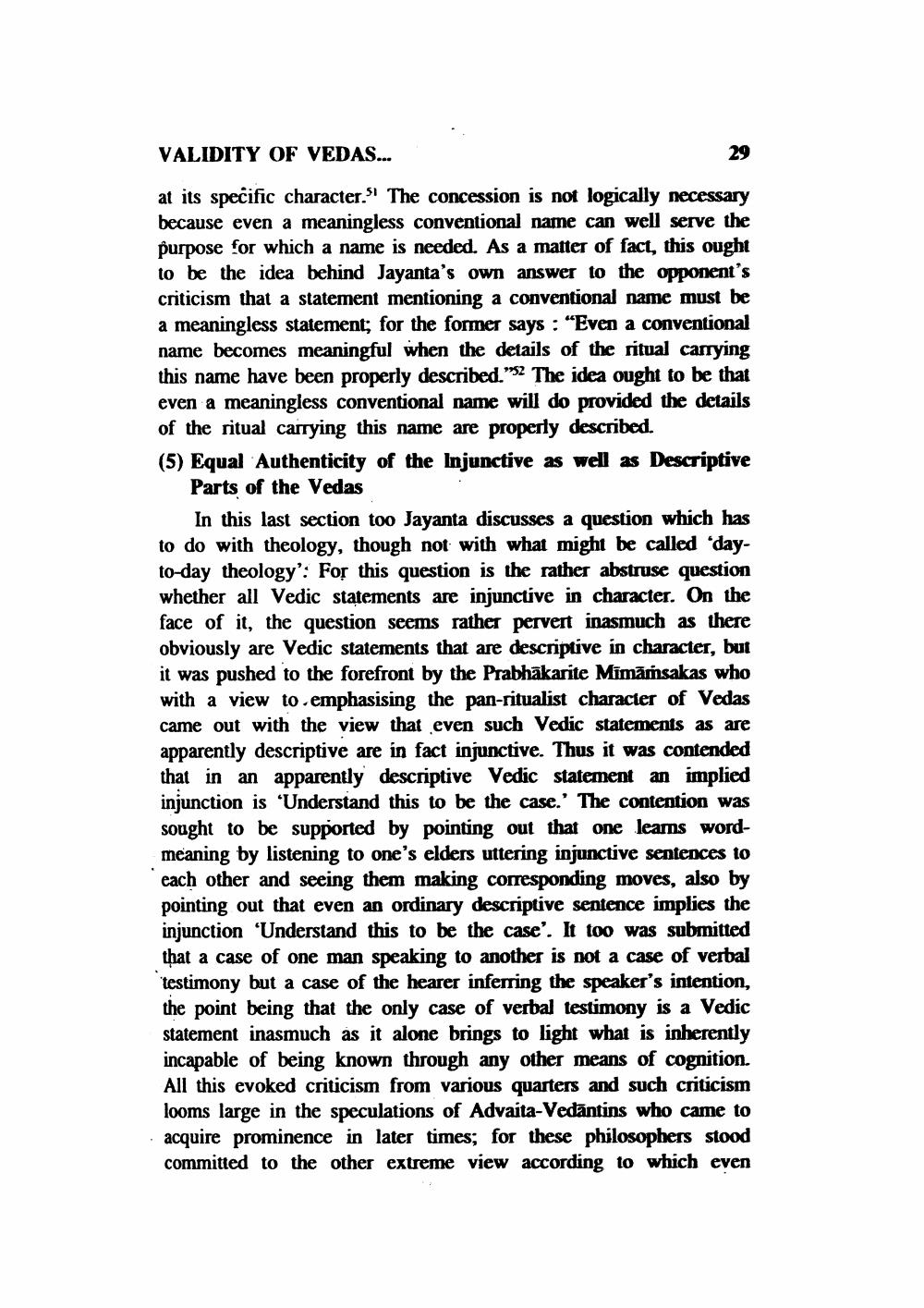________________
VALIDITY OF VEDAS... at its specific character. The concession is not logically necessary because even a meaningless conventional name can well serve the purpose for which a name is needed. As a matter of fact, this ought to be the idea behind Jayanta's own answer to the opponent's criticism that a statement mentioning a conventional name must be a meaningless statement; for the former says: “Even a conventional name becomes meaningful when the details of the ritual carrying this name have been properly described."2 The idea ought to be that even a meaningless conventional name will do provided the details of the ritual carrying this name are properly described. (5) Equal Authenticity of the Injunctive as well as Descriptive
Parts of the Vedas
In this last section too Jayanta discusses a question which has to do with theology, though not with what might be called 'dayto-day theology': For this question is the rather abstruse question whether all Vedic statements are injunctive in character. On the face of it, the question seems rather pervert inasmuch as there obviously are Vedic statements that are descriptive in character, but it was pushed to the forefront by the Prabhākarite Mimārsakas who with a view to emphasising the pan-ritualist character of Vedas came out with the view that even such Vedic statements as are apparently descriptive are in fact injunctive. Thus it was contended that in an apparently descriptive Vedic statement an implied injunction is 'Understand this to be the case. The contention was sought to be supported by pointing out that one learns wordmeaning by listening to one's elders uttering injunctive sentences to each other and seeing them making corresponding moves, also by pointing out that even an ordinary descriptive sentence implies the injunction 'Understand this to be the case'. It too was submitted that a case of one man speaking to another is not a case of verbal testimony but a case of the hearer inferring the speaker's intention, the point being that the only case of verbal testimony is a Vedic statement inasmuch as it alone brings to light what is inherently incapable of being known through any other means of cognition. All this evoked criticism from various quarters and such criticism looms large in the speculations of Advaita-Vedāntins who came to acquire prominence in later times; for these philosophers stood committed to the other extreme view according to which even




